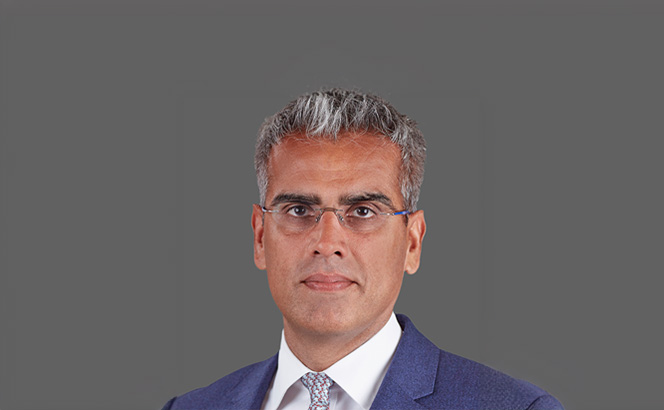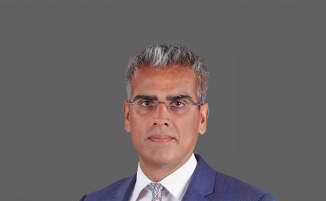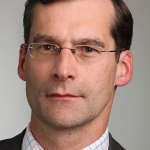Legal 500 Hall of Famer Satnam Tumani, previously head of the SFO’s anti-corruption and bribery unit and a longstanding partner at Kirkland & Ellis, recently moved to boutique firm Edmonds Marshall McMahon. He spoke to LB about his brief to build a new practice, the contrasts between Big Law and boutique law, and his nostalgia for the days of letter-writing
Why did you move to a boutique firm?
Almost 12 years at Kirkland was enough. I needed a change, and had a number of options. Edmonds Marshall McMahon (EMM) was always the favourite, however. Co-founder Kate McMahon is an old friend – she worked for me at the Serious Fraud Office (SFO) over 15 years ago. When she told me she was leaving to set up a private prosecution firm, I remember saying to her, ‘You’re crazy, this won’t work – stay at the SFO.’ I have recanted to her on many occasions since then!
Here we are 15 years later, and it is a very successful law firm – I think over 80% of private prosecutions in this country are conducted by EMM. The opportunity to work with old friends (there are others at EMM) was a real draw, as was the opportunity to build out their investigations and white collar-defence practices. I left Kirkland in an organised and sensible manner and transitioned client work in agreement with them.
What prompted the decision to move at this moment?
It’s nice to try something new – it had been coming for a couple of years. I don’t have any financial ambitions, and I secured a number of big outcomes for clients last year. When thinking about what next, it was more a case about doing what I wanted to do rather than needed to do. I had three months off between roles and toured cities, mountains, hikes and beaches of Europe – I had a fabulous time. I knew I was moving to EMM throughout.
This role is much more flexible; we have a very small conflict profile, and I am not working at Big Law rates anymore. I have near total freedom to build a practice – the flexibility gives me an opportunity to target parts of the market that I was not able to do previously.
I’ve pretty much generated my own worldwide clients, so generating new business is not something that I find difficult. I have an angle and prior expertise. It’s increasingly relevant because the law as it relates to big companies is increasingly sliding down in terms of attribution. It’s easier for a company to commit a criminal offence now than it was 10 or 20 years ago. That sort of direction of travel is making my expertise more and more relevant.
Will you be setting up a new practice?
Yes, the aim is to set up two new areas of business – investigations and white-collar defence, which is what I’ve been doing for the last 12 years. I’m trying to build a cohesive offering from the existing experience within the firm and build it up together with my own expertise.
What will building up the two practices look like?
The firm is a specialist prosecution firm. It has done ad hoc work in investigations, and it has had opportunities to do white-collar defence, but it’s not a core part of what they have historically done. It’s really that direction of travel that we’d like to take. I’m not entirely irrelevant to their core offering too – prosecuting is a big part of my career. It’s a really nice combination of the two.
We’ll probably make further hires at some point, but it’s a pure white-collar firm so there are more white-collar fee earners here than there are at many bigger firms. I already have access to a really talented bunch of people that have done all sorts of investigations work and secondments or historical roles at the SFO, the Crown Prosecution Service (CPS), National Crime Agency (NCA), Financial Conduct Authority (FCA) and others.
You’ve spent a significant amount of time at Kirkland and the SFO – how will your responsibilities differ in your new role?
We’re a much smaller, nimbler and more flexible firm. A big firm like Kirkland obviously attracts a lot of interest and attention. I’m sure I wouldn’t have been as big of a success in my career or as big in this space if it wasn’t for the fact that Kirkland was also going places. Nevertheless, I’ve made an awful lot of contacts in the industry over the last 30 years. I’ve got existing clients coming along to EMM, so in many ways it’s really a question of carrying on where I left off, but in a much more flexible and specialist environment.
What do you foresee as the primary areas of focus in the white-collar and corporate crime space?
There’s lots of new faces across the enforcement landscape. In the last year, there’s been a new Director of Public Prosecutions, new heads of enforcement over at the FCA and a new director of the SFO. Ostensibly they’re all setting out their positions in terms of priorities and strategies (and indeed the director of the SFO recently published a five-year strategy plan). I tend to be of the school of thought that I’ll believe it when I see it, because it’s easy to say you’re going to do something – it’s much harder to deliver.
For example, if you look at the numbers, the SFO is doing much less with much more money than was the case 10, 15, or even 20 years ago. I tend to try look through the announcements and drill it down to the figures and output. The proof of the pudding is in the eating.
What shifts have you noticed in the legal sector over the course of your career?
Everything’s a little bit more immediate. I remember when I started out, all your letters would be dictated and then typed for final review and signature at the end of the day – my signature today is the product of having to quickly squiggle a multitude of times! At best, letters would reach the other side in a day or so. There would be no expectation that you would necessarily write the letter the day you got the request. There just wasn’t that dynamic. We all had a bit more distance between us as a result. The immediacy of email has fundamentally changed that dynamic.
If you weren’t specialising in white-collar and corporate crime, what area of law would you be doing?
There’s no other practice in the law I’m interested in. I’ve been a white-collar lawyer for 30 years because I’ve enjoyed it. I trained at the SFO – I was one of the first SFO trainees, with additional secondments, at Allen & Overy and the Treasury Solicitors.
Financial crime is super-interesting. Some cases have enforcement agency interest, while others don’t. Personalities and clients are all very different, and no two cases are the same. I’m not like a deal lawyer where clients may be looking forward to seeing them, it’s not that sort of relationship. My work is miles away from the corporate side of the law – good luck to the people who do that, but I wouldn’t want to do it in a million years.
I don’t know if anybody loves white collar lawyers – I am pretty sure clients would much rather not want the need to see me! But at some point, they come to the view that as an organisation they’d like to understand what their issues might be, and they turn to a trusted advisor who can counsel them at a time of need or an independent investigator that can reveal the full extent of facts that would otherwise be opaque and potentially damaging.














